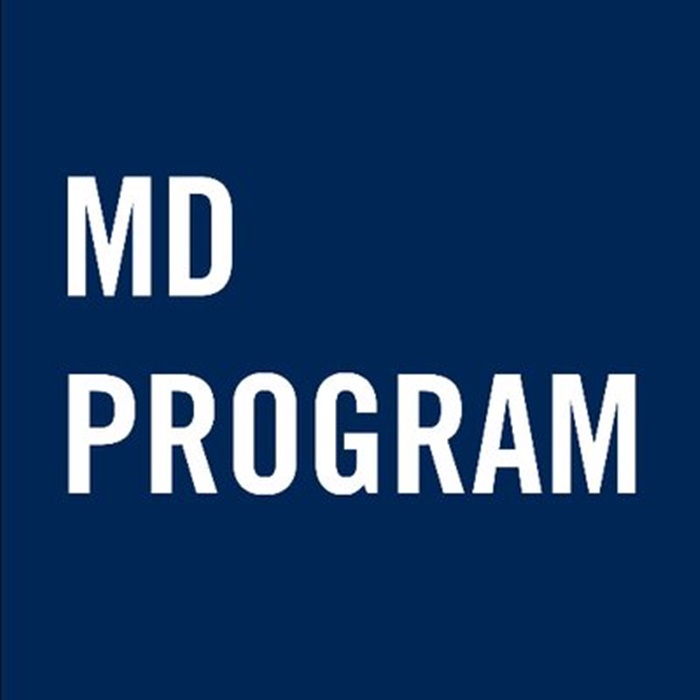MD PHD Acceptance Rate Us, MD-PhD programs are much more selective than conventional medical programs and have lower acceptance rates.
The Association of American Medical Colleges (AAMC) reported that the total acceptance rate for MD-PhD programs in the US for the 2020–2021 application cycle was approximately 9.1%. According to the particular program and the qualifications of the applicants, this acceptance rate, however, can vary greatly.
In addition, it’s important to keep in mind that the application procedure for MD-PhD schools is often more extensive and time-consuming than for conventional medical programs. A strong commitment to pursuing a career in both medicine and research is required of applicants in addition to achieving the prerequisites for medical school admission.
Generally, MD-PhD schools are extremely selective and competitive, but they can provide a special and fulfilling career path for people who are passionate about both medicine and research.

>>> Point Loma Nazarene Us | How to Apply
Application Procedure for MD PHD Acceptance Rate Us
Typically, there are numerous phases involved in applying to MD-PhD schools in the US, including:
- Program research: Start by looking into the MD-PhD programs offered in the US. Find MD-PhD programs that suit your interests and qualifications using the AAMC’s database.
- Meeting Admissions Requirements: Admissions requirements for MD-PhD programs often include a solid academic record, research experience, and a desire to pursuing a career in both medicine and research. Before applying, make sure you meet these conditions.
- Taking the MCAT: Entrance to the majority of MD-PhD programs requires passing the Medical College Admission Test (MCAT). Make sure you study thoroughly in advance of the test and get a competitive score.
- Application Process: For MD-PhD programs, applications are normally submitted through the American Medical College Application Service (AMCAS) or, for Texas-based institutions, the Texas Medical and Dental Schools Application Service (TMDSAS). Transcripts, recommendation letters, a personal statement, and other papers are required as part of the application process.
- Interview: You will be given the opportunity to interview with the program if your application is competitive. This interview is a chance for you to learn more about the program and for the program to get to know you better.
- Choosing a Choice: If you are accepted to more than one MD-PhD program, you must choose which one to enroll in.
Keep in mind that MD-PhD schools are fiercely competitive, and acceptance rates vary by program. Give yourself plenty of time to complete your application, and ensure that you do so in accordance with each program’s standards. Good fortune!
>>> Brandeis University Acceptance | How to Apply
advantages of Us MD PHD Admission Rate
The following are some advantages of enrolling in an MD-PhD program in the US:
- Dual Degree: After completing an MD-PhD program, you will be awarded both a medical degree and a PhD. You will be able to work as a doctor and a researcher, which can lead to a wide range of professional prospects in academia and industry.
- Research Experience: MD-PhD programs frequently offer substantial research experience, which can be quite helpful for anyone looking to work in the field of biomedical research. Your ability to do independent research and contribute significantly to the area can be improved thanks to this experience.
- Finances: Several MD-PhD schools provide full funding, which covers tuition, fees, and a living stipend. This can let you focus on your academics and research while also lessening the financial strain of earning two degrees.
- Networking: MD-PhD schools frequently offer chances for students to connect with faculty members, other students, and researchers in the area. You can develop business contacts this way that will be helpful to you all along the way.
- Impact: Enrolling in an MD-PhD program gives you the chance to have a big effect on both research and medicine. You can significantly contribute to developing scientific understanding and improving human health by merging your knowledge from the two domains.
Overall, for those who are interested in both medicine and research, an MD-PhD degree in the US can offer a distinctive and fulfilling professional path.
MD PHD Eligibility Acceptance Rate Us
Depending on the program and university, the criteria for MD-PhD programs in the US can change. However, in general, applicants to MD-PhD programs must fulfill the following requirements:
- Good Academic Record: MD-PhD program applicants should have a solid academic history, often with a GPA of 3.5 or better.
- Research Experience: MD-PhD programs are created for students who want to work in both research and medicine after graduation. As a result, candidates ought to have some research experience, whether it be from working in a lab or finishing a personal research project.
- MCAT scores: The majority of MD-PhD institutions demand that applicants take the MCAT (MCAT). Candidates should strive for a competitive exam score.
- Recommendation Letters: Candidates are often expected to provide reference letters from someone who can attest to their academic and research achievements.
- MD-PhD schools often require applicants to submit a personal statement outlining their reasons for obtaining both degrees as well as their professional aspirations.
- Candidates that satisfy the aforementioned criteria may be invited to an interview with the MD-PhD program.
It’s crucial to remember that admission to MD-PhD programs is extremely competitive, thus achieving the aforementioned eligibility requirements does not ensure admission. In making their selections, admissions committees take into account a variety of elements, including as an applicant’s academic record, research experience, personal statement, and interview performance.
>>> Iowa State Acceptance Rate Us | How to Apply
Frequently Asked Questions (FAQs)
What GPA is acceptable for MD-PhD?
Depending on the particular program and the level of applicant competition, the GPA requirements for MD-PhD programs can change. Typically, applicants to MD-PhD programs should have a good academic background, including a high undergraduate GPA. Typically, a competitive GPA for MD-PhD programs is above a 3.5 on a scale of 4.0. If a student has remarkable research experience, strong letters of recommendation, and other outstanding credentials, certain MD-PhD institutions might accept them despite their lower GPA. The precise GPA criteria for each MD-PhD program you are interested in applying to should be carefully reviewed.
Is admission to MD-PhD easier or harder?
An MD-PhD program is often thought to have more competitive admission requirements than a regular MD program. MD-PhD programs are extremely competitive and look for applicants with a solid academic history as well as a track record of dedication to research.
Transcripts, letters of recommendation, personal statements, and occasionally the results of the Graduate Record Examination (GRE) are required as part of the application process for MD-PhD schools (GRE). The admissions committee interview is frequently requested of applicants as well.
In addition, because students are required to finish both medical school and a PhD degree with a research focus, MD-PhD programs typically require a lengthier time commitment than conventional MD programs. This calls for the highest levels of motivation, dedication, and time management from MD-PhD candidates.
Overall, although applying to MD-PhD schools might be difficult, they provide a special and fruitful career path for those who are enthusiastic about both medicine and research.
>>> Union College Acceptance Rate Us | How to Apply
What proportion of people have an MD and a PhD?
Less than 1% of all doctors in the US hold an MD-PhD degree as of 2021, according to the National Institutes of Health (NIH). This is due to the fact that MD-PhD schools are extremely competitive and selective, generally only accepting a few number of applicants each year.
MD-PhD holders, however, are widely represented in academic medicine and biomedical research and contribute significantly to the knowledge of disease and the creation of novel treatments. In academic medical facilities, research institutions, and biotechnology businesses, many MD-PhD graduates go on to pursue jobs as physician-scientists.



